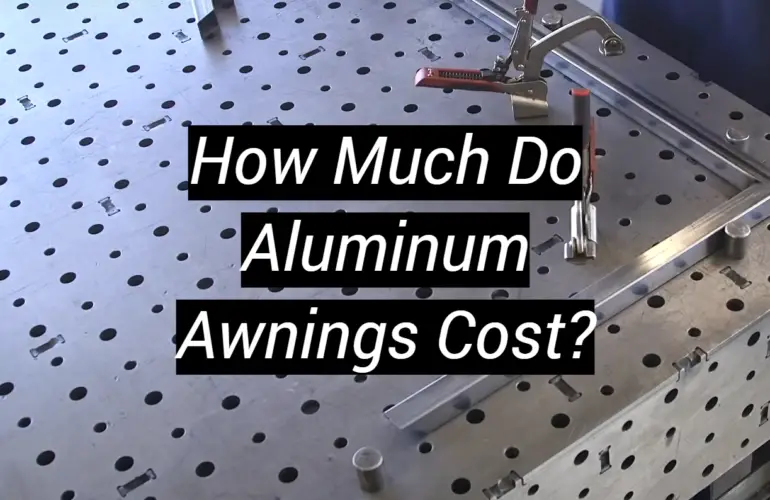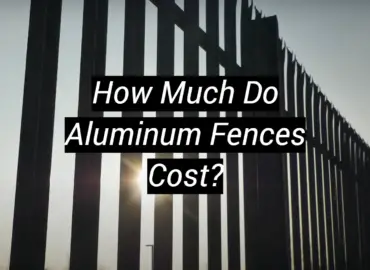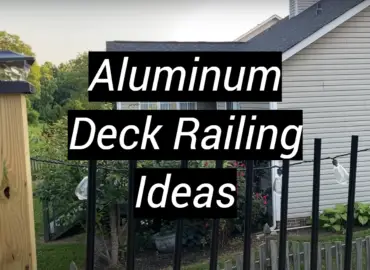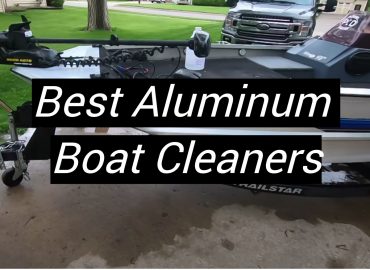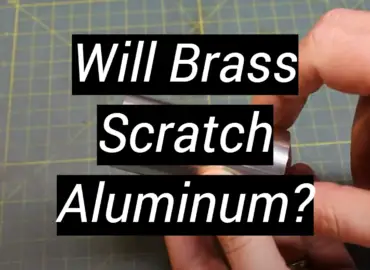When you’re considering the purchase of aluminum awnings for your home or business, it can be exciting to think about how they will transform the look and feel of your building. But figuring out exactly what they will cost and making sure that all the important elements are taken into account ahead of time is an equally critical part of any shopping trip. With this blog post, we’ll provide some insight into aluminum awning prices, outlining common factors that typically influence their costs so that you’re well-prepared when it’s time to make a decision!
Types of Awnings
There are several types of awnings available, each suited to different purposes and locations.
- Retractable awnings, for example, can be manually or with a motor, offering plenty of options for adjusting the amount of shade provided at any given time.
- Stationary awnings provide permanent coverage from the sun and other weather elements.
- Window awnings offer protection from direct sunlight while also providing an attractive accent to your home’s exterior.
- Canopies are an ideal solution if you need more space-saving portability and extended coverage from the elements.
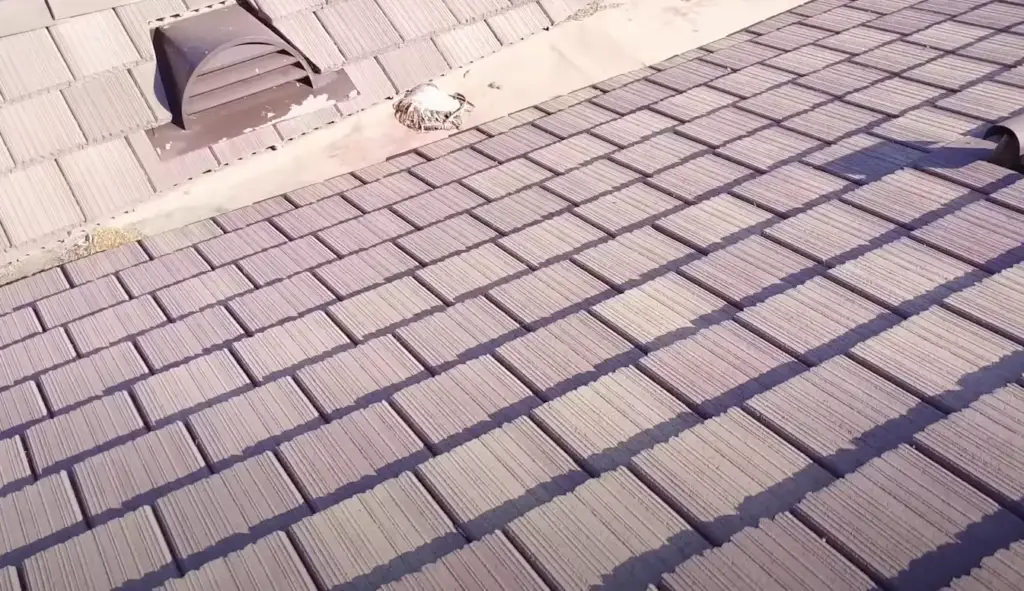
There is also a division of awnings into groups, depending on the type of material employed. Among the common ones are:
- Fabric awnings – fabric is the most popular material for awnings as it is flexible and versatile. It can be used in more creative ways than metal or canvas, including vibrant colors and patterns.
- Metal awnings – these are commonly used for commercial buildings. They offer great protection from the elements, but tend to have more of an industrial look that may not appeal to all homeowners.
- Canvas awnings – these provide good coverage from sun and rain, but often lack the aesthetic appeal that other materials can provide. [1]
What Metals Do Awnings Come in?
Awnings come in a variety of materials, including:
- Aluminum – One of the most popular metals for awnings. It is lightweight and low-maintenance, making it an ideal choice for both residential and commercial settings.
- Steel – It is a great option for durability, as it can withstand extreme temperatures and weather conditions without rusting or fading. It’s also relatively easy to find steel in different colors and styles.
- Stainless Steel – This material offers all the benefits of regular steel, plus superior corrosion resistance and increased strength.
- Copper – Copper items are attractive but require more maintenance than other options due to their susceptibility to tarnish over time. They are often used in Mediterranean-style homes as well as historic properties that want a classic look.
- Vinyl – They are becoming increasingly popular due to their low cost and easy maintenance. They can be found in a wide range of colors, designs, and styles.
- Fiberglass – It is a great option for those who want both function and style. It’s lightweight and highly durable, yet still flexible enough to create custom shapes that can suit any home or business.
- Wood – Wooden awnings give an attractive rustic look, while also providing excellent protection from the elements. The downside is that they require regular maintenance in order to keep them looking good. [2]
Key Purposes For Which Awnings Are Used
Awnings are primarily used to provide shade and shelter from the elements. They can be employed in both residential and commercial settings to protect outdoor areas from sun, wind, rain, and other weather conditions.
Additionally, awnings are an attractive way to decorate outdoor areas while providing protection from the elements. Awnings can also be used to reduce energy costs by blocking out hot sunlight during summer months or keeping cold air out in winter months. Lastly, they can provide privacy for homes and businesses alike as well as create visually appealing accents for any building or home exterior.
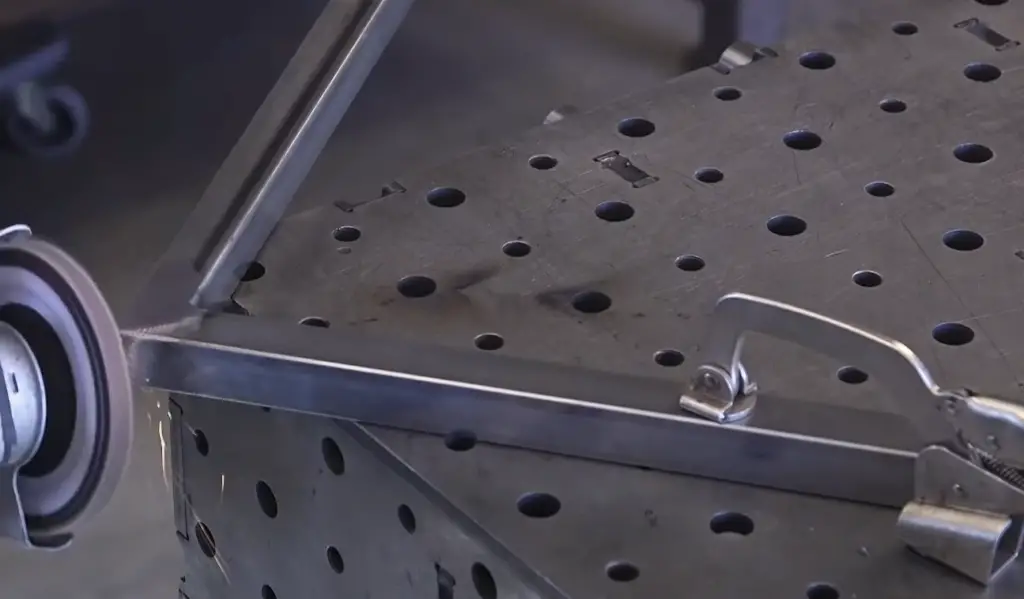
A variety of materials are available for awning fabrication. This allows homeowners and business owners to choose the ideal material for their specific purpose or desired look. Additionally, motorized and manual awnings are available so homeowners can easily open and close them depending on their needs.
They are suitable for different purposes including sheltering a car.
It will protect the car from the harmful effects of sunlight. This way you will protect the paint coating and keep your car in good condition longer. The awning covers your car from rain and snow. You will not need to clean the car from the snow in winter and clean from fallen leaves in the fall. Also, the awning creates shade and the car heats up less on sunny days.With such versatility, it’s easy to see why awnings have become an increasingly popular addition to residential and commercial properties alike. Whether you are looking for shade, protection from the elements, privacy, energy savings or all of the above, there is an awning that will meet your needs. [3]
Advantages and Disadvantages of Using Aluminum Awnings
Advantages of using aluminum awnings include:
- Durability – The material is highly durable and resistant to corrosion, allowing aluminum awnings to last for many years without needing replacement.
- Lightweight – Compared to other materials such as wood or steel, aluminum is very lightweight. This makes the installation process much easier and quicker.
- Cost-Effective – Due to its lower weight, aluminum is cheaper than most other materials used for awning construction; making it an economical choice for homeowners.
- Low Maintenance – Aluminum does not require any special care or maintenance, which helps keep costs low over time.
- Versatility – Such awnings come in a variety of sizes, colors, and shapes. This makes them suitable for almost any situation or environment.
Disadvantages of using aluminum awnings include:
- Prone to Damage – It can be easily damaged by rough weather conditions such as hail or heavy winds. It is also prone to dents and scratches if not properly maintained.
- Low Energy Efficiency – Due to its light weight and low insulation value, aluminum does not provide the same level of energy efficiency as some other materials used for awning construction.
- Susceptible to Expansion & Contraction – When exposed to direct sunlight or extreme temperatures, aluminum may expand or contract, resulting in bowing or warping of the awning frame. Therefore, it is important to ensure that the awning is installed in a location where it will not be exposed to these extreme temperatures.
- Low Noise Resistance – The lightweight nature of aluminum means that it does not provide an effective barrier to noise pollution, making it unsuitable for areas with high levels of noise.
- Visibility – As aluminum tends to be more reflective than other materials, its presence may be more noticeable than other types of awnings. Therefore, it should not be used in locations where visual privacy is desired. [4]
Factors Affecting the Price of Aluminum Awnings
The price of awnings is affected by many facts. And this should be kept in mind when selecting the material, the supplier and the like. Also, this applies to the situation when you order a unique awning with a particular handmade design.
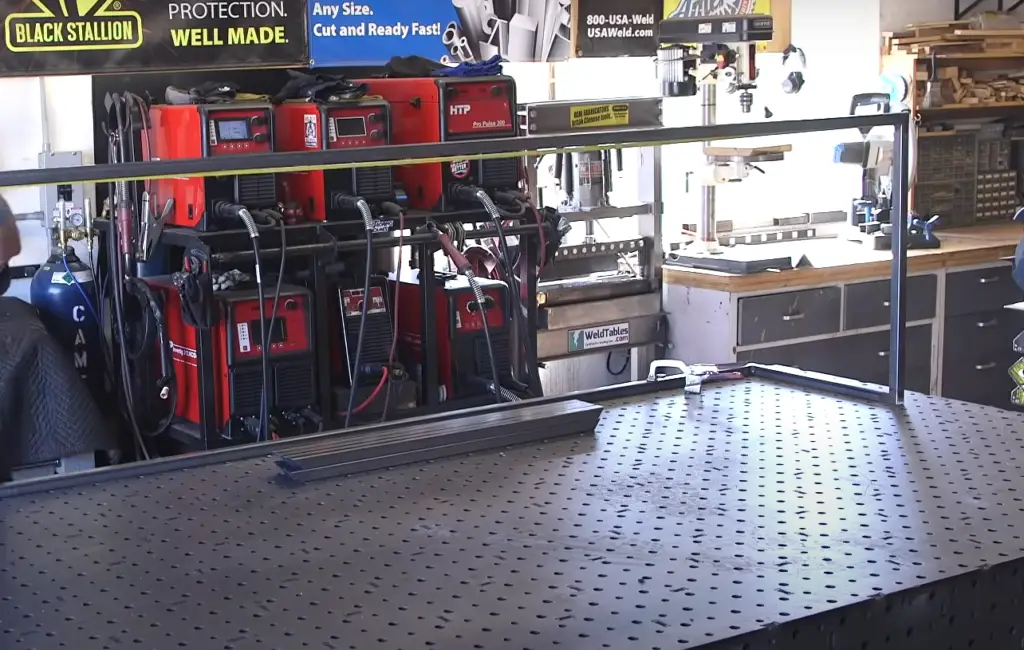
The cost of standard constructions are determined by the following factors – material, placement, size, style, work.
- Material – Aluminum is a widely used material for making awnings because of its durability and adaptability to different weather conditions. It has a strong strength-to-weight ratio and the cost of aluminum is very competitive in comparison with other materials, like wood or fiberglass. The pricing of aluminum will depend on the quality of the alloy used as well as the thickness and sizes requested.
- Placement – Generally, installing awnings over windows or doors require more labor than mounting them on walls or roofs due to higher risk of harm from wind. This can increase overheads costs that might influence an overall price increase when purchasing your desired product.
- Size – Larger sizes will be costlier than smaller sizes due to the additional material needed for manufacturing and installation.
- Style – The complexity of the design will affect the price of awnings, as an intricate pattern may need more time to complete in comparison with a simpler form.
- Work – If you decide to use a professional service for installing or manufacturing your aluminum awning, this cost should be included into your budget. Professional work is usually more expensive than DIY projects but can potentially ensure better outcomes and save you time and money in future repairs and maintenance costs. [5]
Potential Extra Costs
When considering adding an awning to your property, you may want to factor in any additional costs that come along with the purchase. These could include buying additional materials for installation and anchoring, hiring professionals for the installation process, purchasing additional accessories or features, and paying miscellaneous fees such as permit fees or taxes.
- Additional Materials: Depending on the type of awnings you choose, there may be several different materials needed for a successful installation. This could include anchors for hard ground or heavy duty screws if installed onto brickwork. You may also need tools such as wrenches and drill bits to ensure everything is securely fitted together.
- Installation Costs: Installing an awning can be tricky and require special skills. If you’re not confident in your DIY abilities, it may be best to hire someone with experience to complete the job. This could add an additional cost onto the overall purchase price of the awning.
- Accessories and Features: Awnings can come with a range of different accessories and features that may require an extra expenditure. For example, lights or custom fabrics can add flair and style to the finished product but often come at an additional cost due to their unique nature.
- Permit Fees & Taxes: Depending on where you live, there may be special fees or taxes associated with adding an awning to your property. Be sure to check your local regulations ahead of time so you don’t get hit with any unexpected costs. [6]
How to Paint an Aluminum Awning?
Painting can be a rewarding and satisfying project for any homeowner. It will not only improve the look of your home but also protect it against harsh weather conditions.
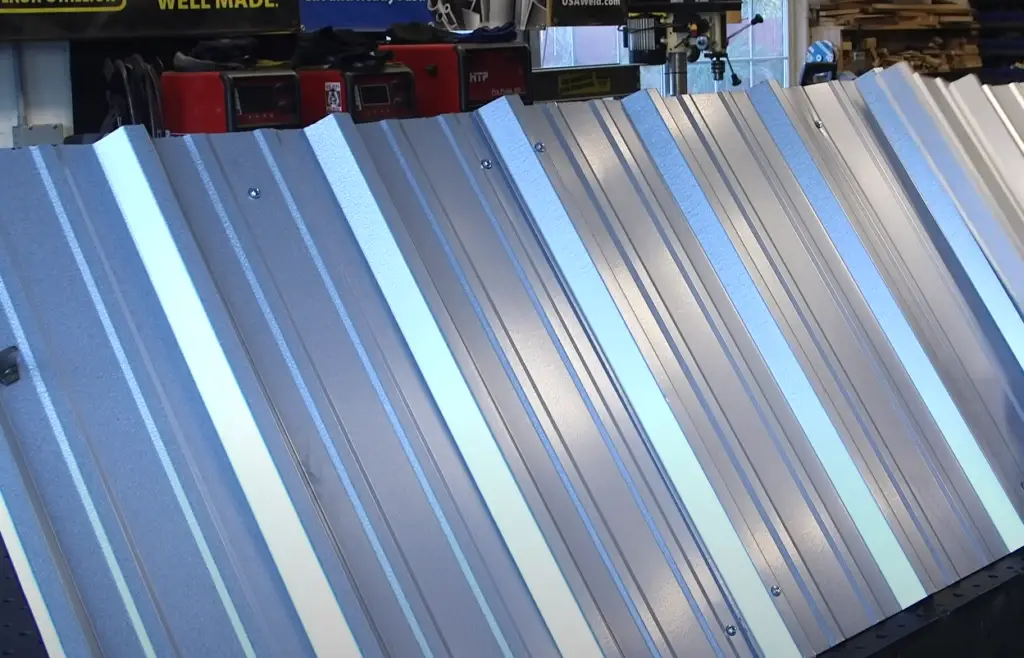
Here are the steps you need to take:
- Clean thoroughly: Before you start painting, use soap and warm water to clean the surface of the aluminum awning from dirt, dust, and debris. You should also rinse off all traces of soap with clean water before proceeding with painting.
- Sand lightly: Use sandpaper or steel wool to rub away any exposed rust spots or imperfections on the surface. This will help create a smoother canvas for the paint to adhere to.
- Prime the surface: Apply a coat of good quality primer. This will ensure that the paint adheres properly and lasts longer.
- Paint in thin layers: When applying the paint, make sure to apply it in thin coats so that it covers all areas evenly without any runs or drips. Allow each layer to dry before adding another one on top of it.
- Finish with a sealant: After you’re done painting, use an outdoor sealant or clear coat spray to protect awning against harsh weather conditions and UV rays from the sun. Make sure to follow instructions carefully when applying these products. [7]
DIY VS Hire an Awning Professional
When it comes to awnings, you have two options: do-it-yourself (DIY) or hire an awning professional. Deciding which route is best for your project depends on a number of factors including the complexity of the installation, cost, experience level and time available.
If you choose to DIY, there are several advantages such as saving money by not paying labor costs, having complete control over the process so that everything is done your way, and learning more about awnings in the process. However, there are key risks associated with DIY projects when it comes to awnings: from making mistakes during installation to using subpar materials that don’t meet building codes.
On the other hand, hiring an awning professional has several advantages as well. Professionals have the right tools and experience to ensure a job is done correctly from start to finish. Additionally, they can help you select materials that will meet all building codes and last longer. The cost of labor might be more expensive but with fewer mistakes and superior materials, it could end up being worth it in the long run.
How to Extend the Life of Your Aluminum Awnings?
When it comes to extending the life of your aluminum awnings, there are several steps you can take.
First, make sure that your awning is securely attached to the house and any other structures in order to avoid excessive stress on the material. This will also help prevent water damage from rain or snow accumulation. Additionally, keep an eye out for any rust spots or corrosion developing on the surface as this indicates potential structural damage. If needed, have these areas patched up by a professional before they become more serious problems.
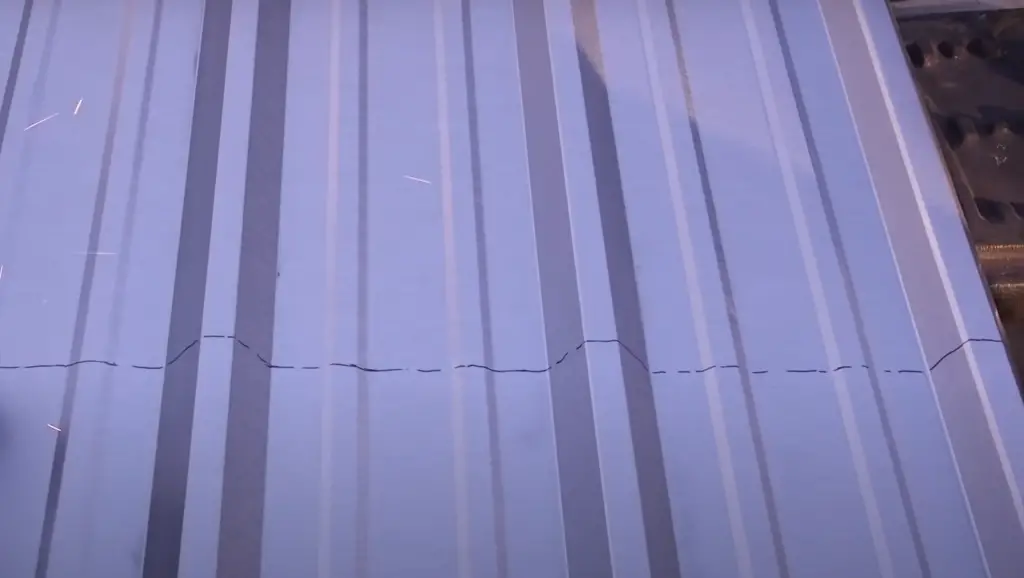
Second, be sure to inspect your awning regularly and perform routine maintenance such as cleaning off dirt and debris from its surface and checking for signs of wear and tear. You may even want to coat the awning with a sealant or protective finish regularly in order to protect it from UV rays and other environmental conditions.
Third, try to avoid using strong cleaning chemicals or abrasive materials on your aluminum awning as these can cause damage over time. When necessary, use mild soap solutions and soft cloths instead.
Fourth, have your awning serviced at least once a year by a professional. This will help ensure that any potential problems are caught early and can be repaired before causing serious damage.
By following these steps, you should be able to keep your aluminum awnings in good condition for years to come. With proper care and maintenance, they can easily last for decades without needing to be replaced. [8]
FAQs
Are aluminum awnings good?
Yes, aluminum awnings are a popular choice for many homeowners because they are durable, easy to maintain and can last for decades with proper care. They also provide excellent protection from the sun’s harmful UV rays and protect your outdoor seating area from rain or snow.
How long do aluminum awnings last?
They can last for decades with proper care and maintenance. They are also very durable, so they won’t need to be replaced as often as other materials may need to be.
Do aluminum awnings get hot?
Aluminum awnings are designed to reflect the sun’s heat, preventing it from entering your home. However, they can still become warm on hot days. If you’re looking for an awning that will stay cooler to the touch, consider using fabric awnings instead.
Additionally, many fabric awnings come with special coatings that help them block ultraviolet rays and keep their colors vibrant for years to come.Do aluminum awnings rust?
No, aluminum awnings do not rust. Aluminum is naturally resistant to corrosion and does not corrode or rust when exposed to moisture and air. In fact, it is one of the most durable materials used in awnings today due to its resistance to degradation from exposure to environmental elements.
Useful Video: Make Your Own Metal Awnings!
Summing Up
Whether you’re looking to add a bit of extra flare to your home’s exterior or simply trying to protect from damage, aluminum awnings can be the perfect choice. Additionally, with the knowledge that certain factors such as size choices, features and installation requirements can influence their price, it pays off for homeowners to plan ahead and create their perfect set up right from the start. When choosing aluminum awnings remember that they are an investment in your home and with careful consideration you can make the best choice for you. If you need help understanding what options are available at different prices or feel overwhelmed with potential choices, reach out to a local expert who will guide you towards the right decision for your home with friendly advice.
References:
- https://www.qualityoverheaddoor.com/blog/guide-to-the-different-types-of-awnings/
- https://amcaluminum.ph/difference-of-aluminum-and-metal-awnings/
- https://awningtampa.com/what-is-an-awning-why-use-it/
- https://jansawnings.com/blog/pros-and-cons-of-different-awning-materials/
- https://rollac.com/r/factors-that-affects-the-cost-of-aluminum-awnings/
- https://superiorawning.com/2022/06/06/how-much-does-it-cost-to-install-a-metal-awning/
- https://www.hunker.com/13416924/how-to-paint-an-aluminum-awning
- https://newawning.com/five-tips-to-extend-the-life-of-your-awning/

